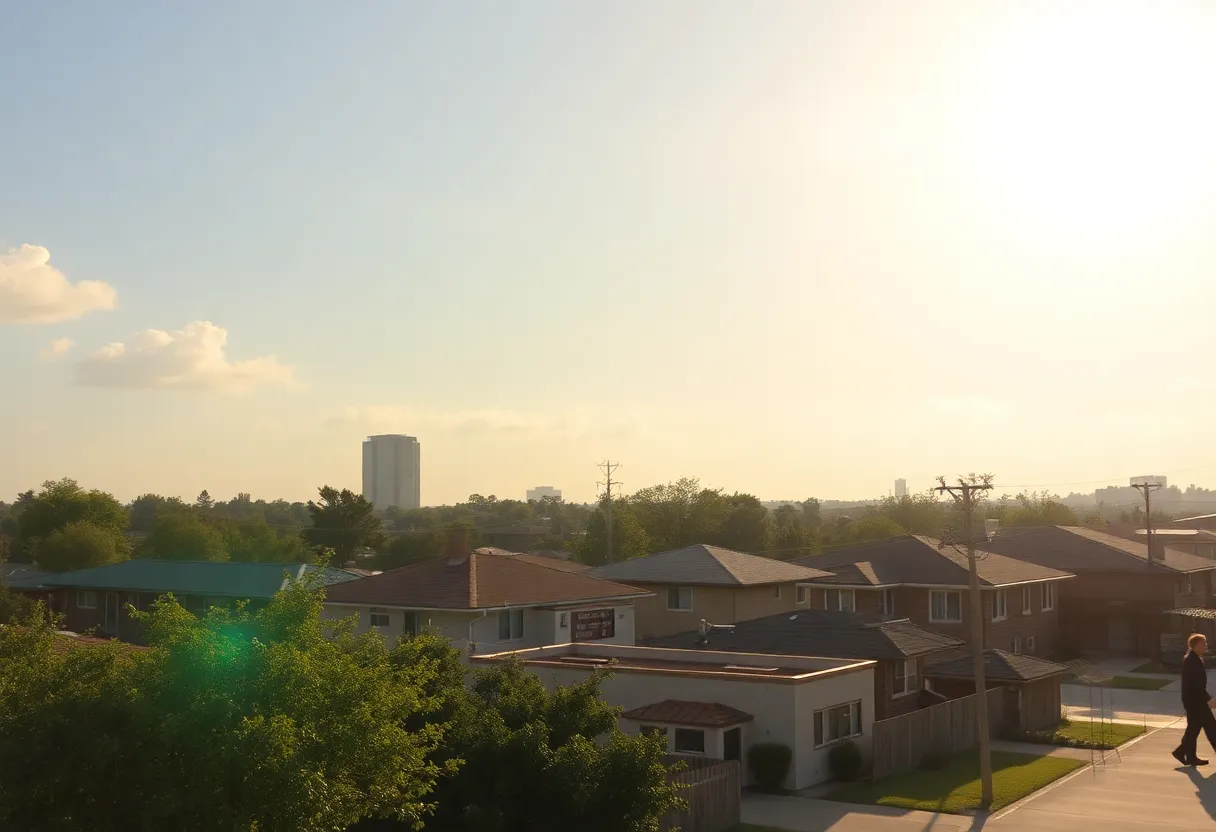News Summary
Houston is facing an unprecedented heatwave with record-breaking temperatures expected throughout the week, peaking at 97 degrees. High humidity levels contribute to stifling conditions, especially in urban neighborhoods like southwest Houston, where the Urban Heat Island Effect intensifies the heat. Local initiatives aim to create more green spaces to mitigate these effects. The National Weather Service has updated heat alert guidelines to raise awareness of risks associated with extreme heat. Residents are advised to take precautions to stay safe during this challenging weather event.
Houston Experiences Sweltering Heatwave, Record Temperatures Predicted as Humidity Rises
Houston is currently facing an unprecedented heatwave that is expected to bring record-breaking temperatures throughout the week. Meteorologists have forecasted that the city will reach a high of 97 degrees on Wednesday, and the effects are expected to linger as humidity levels rise due to a robust Gulf breeze.
This extreme heat will be exacerbated by elevated humidity levels, creating stifling conditions, particularly in certain neighborhoods. Areas such as southwest Houston are forecasted to record even higher temperatures due to the Urban Heat Island Effect, which occurs when urban development raises local temperatures compared to surrounding rural areas.
High heat stress areas have been identified in these urbanized neighborhoods, contributing to the already critical situation. The lack of green spaces in these areas not only leads to excessively warm conditions but also presents a variety of environmental and health challenges for residents.
Impact on Communities
Gulfton, one of the neighborhoods significantly affected by the heatwave, is actively pursuing initiatives to create more green spaces as a response to these rising temperatures. Addressing this urgent need can help mitigate the impacts of the extreme heat and improve overall local conditions.
In addition to local efforts, Houston previously hosted the largest single-day heat mapping campaign in U.S. history in August 2024. This initiative revealed that the hottest neighborhoods were predominantly located on the southwest side of the city, underscoring the need for immediate action in these areas.
National Weather Service Alerts
The National Weather Service is set to implement a new heat alert naming convention in March 2025. The term “Excessive Heat Watch” will be changed to “Extreme Heat Watch,” emphasizing the seriousness of the situation. An Excessive Heat Advisory will be issued when temperatures reach 103 degrees Fahrenheit or higher, while an Excessive Heat Warning will be declared at 105 degrees or more. This change aims to heighten awareness and encourage residents to take necessary precautions during extreme heat events.
During the current week, heat index values in Houston are projected to soar to between 100 and 105 degrees. As nighttime temperatures are expected to drop only to the upper 70s to lower 80s, residents may find it especially challenging for their bodies to cool down effectively.
Health Precautions
The upcoming week will see daytime highs maintain in the mid-90s, with limited chances of rain anticipated. Residents are urged to take precautionary measures, including staying hydrated and minimizing outdoor activities during peak heat hours, to safeguard their health and well-being.
Conclusion
As Houston grapples with this historic heatwave, residents must remain informed and proactive. With the potential for record-setting temperatures, heat advisories, and health risks, it is crucial for the community to prioritize safety and adapt to the rising temperatures.
Deeper Dive: News & Info About This Topic
HERE Resources
Additional Resources
- Fox26 Houston: Potential Houston Heat Warning
- Wikipedia: Heat Wave
- KHOU: NWS Heat Alert Changes
- Google Search: Heatwave Safety
- ABC13: Houston Weather Forecast
- Encyclopedia Britannica: Heat Stroke
- KENS5: San Antonio Weather Impact Alert
- Google News: Houston Weather Alert
- Fox Weather: Record Heat Wave South Forecast
- Google Scholar: Heat Advisory







